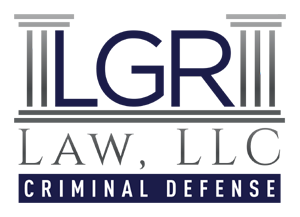As a law firm that specializes in federal criminal defense in New Jersey and the Southern and Eastern Districts of New York, it is important that we stay on top of the United States Sentencing Guidelines and keep our clients informed as well.
The following are summaries of changes to the USSG that are to take effect on November 1, 2015, absent Congressional action. Please take special note of the amount of loss Guideline changes (§2B 1.1), which are applicable to all White Collar Fraud cases. The complete text can be found at http://www.ussc.gov/.
We have broken down the anticipated changes into the following sections:
- Jointly Undertaken Criminal Activity
This amendment requires courts to apply a three-step analysis to determine if a defendant is accountable for the conduct of others under §1B1.3(a)(1)(B). Specifically, the three-step analysis requires the court to: (1) identify the scope of the jointly undertaken criminal activity; (2) determine whether the conduct of others in the jointly undertaken criminal activity was in furtherance of that criminal activity; and (3) determine whether the conduct of others was reasonably foreseeable in connection with that criminal activity.
- Inflationary Adjustments
This amendment makes adjustments to the monetary tables in §§2B1.1 (Theft, Property, Destruction, and Fraud), 2B2.1 (Burglary), 2B3.1 (Robbery), 2R1.1 (Bid-Rigging, Price-Fixing or Market-Allocation Agreements Among Competitors), 2T4.1 (Tax Table), 5E1.2 (Fines for Individual Defendants), and 8C2.4 (Base Fine) to account for inflation. The amendment adjusts the amounts based on a specific multiplier derived from the Consumer Price Index (CPI). The changes are not retroactive but rather a special instruction in both §§5E1.2 and 8C2.4 provide that, for offenses committed prior to November 1, 2015, the court shall use the fine provisions that were in effect on November 1, 2014.
- Economic Crime
This amendment makes several changes to the guideline applicable to economic crimes, §2B1.1 (Theft, Property Destruction, and Fraud). First, the amendment clarifies the definition of “intended loss” to mean the financial harm a defendant intended to inflict. Second, the victims table is amended to include an enhancement for substantial financial hardship to the victim(s). The amendment also revises the specific offense characteristic for sophisticated means, limiting its application to cases in which the defendant intended to use or caused sophisticated means. Finally, under the changes a court may use any reasonable method to calculate loss in cases involving fraudulent inflation or deflation of publicly traded securities and commodities.
- Hydrocodone
The amendment adopts a marijuana equivalency for hydrocodone (1 gram equals 6700 grams of marijuana) based on the weight of the hydrocodone alone. The amendment also moves the drug from Schedule III to Schedule II.
- Mitigating Role
This amendment provides a non-exhaustive list of factors for the court to consider in determining whether an adjustment applies and, if so, the amount of the adjustment. The amendment focuses the court’s attention on the individual defendant and the other participant(s), which is consistent with other provisions of Chapter Three, Part B.
Notably, a finding that the defendant was essential does not end the inquiry, but that individual may still qualify for a mitigating role adjustment, if less culpable than other participants. Finally the commentary is amended to clarify that individuals who perform limited functions “may receive” a downward adjustment.
- “Single Sentence” Rule
“Single Sentence” generally operates to reduce cumulative impact of prior sentences in determining the defendant’s criminal history. To address a circuit split, the commentary to §4A1.2 was amended to provide that a prior sentence included in a single sentence should be treated as if it received criminal history points if it independently would have received criminal history points.
Call with any questions regarding New Jersey and New York federal crimes at (973) 239-4300.




0 Comments